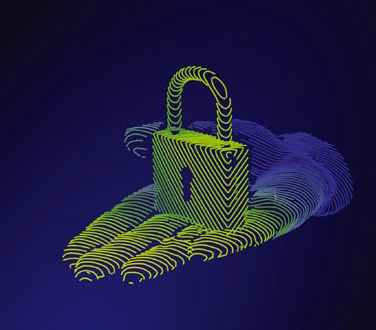Home » Safeguarding your pharmacy: Keeping IT systems and equipment up-to-date
Pharmacies are increasingly reliant on technology to streamline business operations and provide patient services. However, with the rapid advancement of technology comes the constant risk of IT systems and equipment becoming outdated, potentially leaving pharmacies vulnerable to cybersecurity threats. In this article, Anne Marie O’Donnell, Cyber Security Consultant at BH Consulting, explores the importance of addressing outdated systems from a cybersecurity perspective and provides practical tips to safeguard your pharmacy.

According to the Vulnerability Reporting Service (VRS) in the UK’s National Cyber Security Centre (NCSC), analysis of data from 2022 indicated a notable number of vulnerabilities associated with outdated software. The percentage of such reports varied from 1.6 per cent to a peak of 30.7 per cent within a single month, over the course of the year. Additionally, their findings revealed that 70 per cent of vulnerabilities in outdated software stemmed from instances where the software was not updated for over 30 days.
When an organisation suffers a data breach or other security incident this can have a major impact on reputation. If your pharmacy is affected by a security incident due to unpatched software or out-of-date hardware, it could damage your reputation and make it difficult to rebuild and restore your customers’ trust in your pharmacy’s ability to safeguard their sensitive information.
1. Regular updates and maintenance: Ensure that all software, including pharmacy management systems and security software, undergoes regular updates with the latest patches and security fixes to mitigate vulnerabilities. This includes staying current with updates mandated by Irish data protection regulations and GDPR compliance;
2. Hardware upgrades: ICT is an investment, not an expense. Assess the lifespan of hardware components such as servers, computers, and networking devices. Invest in upgrading or replacing outdated hardware to enhance performance and bolster security measures. Consider sustainability and energy efficiency when making hardware upgrade decisions;
3. Data security measures: Implement robust data security measures, including encryption, access controls, and secure backups, to safeguard patient data from unauthorised access and maintain confidentiality. Ensure compliance with Irish data protection laws and GDPR requirements when handling and storing sensitive information;
4. Staff training and awareness: Educate pharmacy staff about the significance of cybersecurity and data protection practices specific to Ireland. Provide training on password best practice, recognising phishing attempts, and incident response protocols to empower staff in safeguarding patient data and maintaining compliance with regulatory standards; and
5. Engage with IT professionals: Collaborate with experienced IT professionals specializing in healthcare cybersecurity and familiar with Irish data protection regulations. Work together to assess your pharmacy’s security posture, identify vulnerabilities, and implement effective risk mitigation strategies tailored to the Irish healthcare environment. Leverage their expertise to ensure compliance with regulatory requirements and protect patient confidentiality effectively.
By prioritising cybersecurity and investing in modern IT solutions, Irish pharmacies can enhance patient privacy, maintain regulatory compliance, and safeguard their reputation. Regular assessments, updates, and staff training are essential components of a comprehensive cybersecurity strategy, ensuring that pharmacies can continue to deliver high-quality care in a secure digital environment.
Anne Marie O’Donnell

Safeguarding your pharmacy: Keeping IT systems and equipment up-to-date
Highlighted Articles